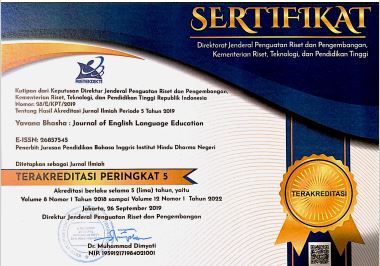THE BENEFITS OF BEING BILINGUAL ACCORDING TO RECENT STUDIES
DOI:
https://doi.org/10.25078/yb.v7i2.2332Keywords:
bilingualism, benefits, cognitive development, , communicative competence, cultural awarenessAbstract
The 21st century has brought technology that connects people around the world, creating the necessity for bilingualism to facilitate international and intercultural communications created from the global interactions. Yet, there are still disputes on the benefits of bilingualism beyond communications and the need for achievement in language learning. Thus, the present study aimed to review previous studies on bilingualism and provide a comprehensive summary on the benefits of bilingualism. The study employed a model of library research from George (2008), where previous studies on bilingualism selected following certain criteria were then critically reviewed to synthesize their arguments on the benefits of bilingualism. The review revealed that bilingualism can benefit students’ cognitive development, problem-solving, communicative competence, academic performance, and cultural awareness. Additionally, bilingualism is also argued to provide health benefits because it can maintain brain functioning and delay degenerative cognitive function diseases, such as dementia and Alzheimer. Thus, being bilingual contributes to the development of students’ 21st Century skills.








